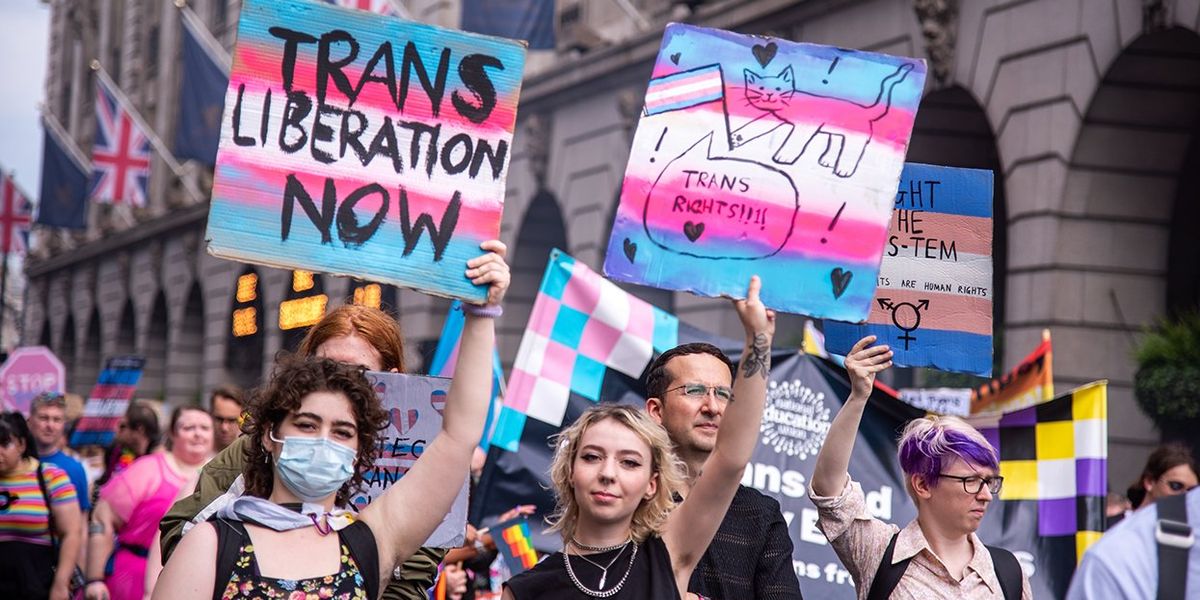The United Kingdom‘s leading human rights agency is set to issue guidance banning transgender people from single-sex facilities — in some cases, even those that match their sex assigned at birth.
Keep up with the latest in LGBTQ+ news and politics. Sign up for The Advocate’s email newsletter.
The Equality and Human Rights Commission is expected to submit the guidance this month, according to The Times, in supposed compliance with the nation’s recent Supreme Court ruling. The policy will impact trans people’s access to bathrooms or changing rooms in organizations that provide public services, including schools, hospital wards, sports clubs, domestic violence shelters, prisons, charities, and some shops.
The draft also said that a trans person could be banned from spaces that do match their biological sex, claiming, “a legitimate aim for excluding a trans person from a separate or single-sex service for their own biological sex might be to prevent alarm or distress for other service users.”
“A trans man might be excluded from the women-only service if the service provider decides that, because he presents as a man, other service users could reasonably object to his presence, and it is a proportionate means of achieving a legitimate aim to exclude him,” the guidance states.
Scotland, which is part of the U.K. but has a semi-autonomous government, passed a law in 2018 that all Scottish public organization boards must have an equal number of men and women members. Trans women were included in the number of women board members if they had a gender recognition certificate.
For Women Scotland, a right-wing organization dedicated to so-called women’s “sex-based rights” — a dog whistle used by anti-trans activists to exclude trans people from public spaces and reduce women to their genitals — filed a lawsuit against the government challenging the inclusion of trans women. They initially lost their case in Scotland before appealing to the U.K. Supreme Court.
The court ruled in their favor, determining that trans women aren’t legally considered women under the nation’s Equality Act. The ruling has already been applied by some agencies, including the Football Association, which banned trans women from playing women’s soccer in May without mentioning trans men. Pride Sports, an LGBTQ+ sports organization, told the New York Times that there were fewer than 30 trans women playing women’s soccer in England and Scotland, and they had done so “without incident.”
However, the change to the legal definition of sex was “only for the purpose of the Equality Act 2010 and does not permit harassment or discrimination based on the protected characteristic of gender reassignment” such as bathroom bans, according to LGBTQ+ advocacy group Stonewall Scotland.
Stonewall Scotland denounced the EHRC’s guidance in a statement released shortly after the policy was first proposed, saying that it “risks encouraging organisations to implement blanket exclusionary policies, which will impact on trans people’s rights to non-discrimination in enjoyment of their human rights and may open up litigation risks.”
“As an organisation that has long campaigned for equal rights for all LGBTQ+ people, we are incredibly concerned about the impact this guidance will have on the ability of trans people, as well as gender non-conforming LGB people, to live their lives free from harassment and discrimination,” it wrote.

